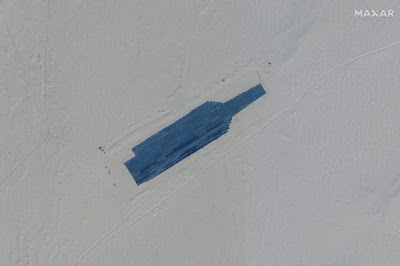I've been asked to write something about PRC military buildup and a potential Taiwan (TW) conflict.
1. My perspective and bona fides: My father was a KMT officer, my mother's father was a KMT general and that side of the family is related to Chiang Kai Shek by marriage. I have relatives both in PRC and TW. My wife is a graduate of National Taiwan University. I should be biased in favor of TW and against CPC but I am a realist and rationalist so I call things as I see them.
2. PRC military technology has reached parity with the US and, overall, surpassed Russia. PLARF (dedicated rocket forces) may be decisive in a conflict in the pacific. They may have achieved A2AD and can make it very costly for the US navy to operate anywhere near TW.
3. Specifically, long range missile attack on surface ships, using initial targeting via satellites and drones, and final targeting from sensors on the missile itself, is probably a mature technology now and difficult to defeat with countermeasures / missile defense.
5. PRC can easily blockade TW if desired, and (at cost of significant escalation) can probably also blockade Japan and S. Korea as well. All of these countries import ~90% of energy and ~50% of food calories, so a protracted blockade would have serious impact.
6. I don’t believe PRC has near term plans to invade TW, but they have to maintain the capability to deter any change in the status quo. Both sides prefer the status quo but accidents can happen.
7. Thanks to stupid US strategy re: Ukraine, PRC can rely on Russian energy in the future and will become much more resistant to naval blockade (e.g., of oil supplies transiting the Malacca Strait). In other words, dumb US neocons solved PRC’s energy security problem for them.
No one talks about this because US strategy has been brain dead for a long time. No one even talks, in the immediate aftermath, about the trillions of dollars and millions of lives wasted over 20y in the Iraq/Afghanistan tragedies. Cui bono?
8. PRC spends a smaller fraction of GDP on defense than the US, but because they have mastered the entire military technology stack cost estimates should be PPP adjusted. After PPP adjustment the PRC economy is substantially larger than the US economy. This, plus the fact that their manufacturing capacity (e.g., ship building) is far beyond that of the US, means that their overall capability to produce war materiel (i.e., to engage in a rapid buildup on, e.g., a 5y timescale) has easily surpassed ours. Anyone following their recent naval or air power or missile or satellite build up can see that this is the case.
I'll be discussing some of these topics with Lyle Goldstein (US Naval War College, Watson China Initiative at Brown University; BA Harvard, PhD Princeton) in a future podcast.
Panic bells, it's red alert
There's something here from somewhere else
The war machine springs to life
Opens up one eager eye
Focusing it on the sky
-- 99 Luftballons

.jpg)



No comments:
Post a Comment